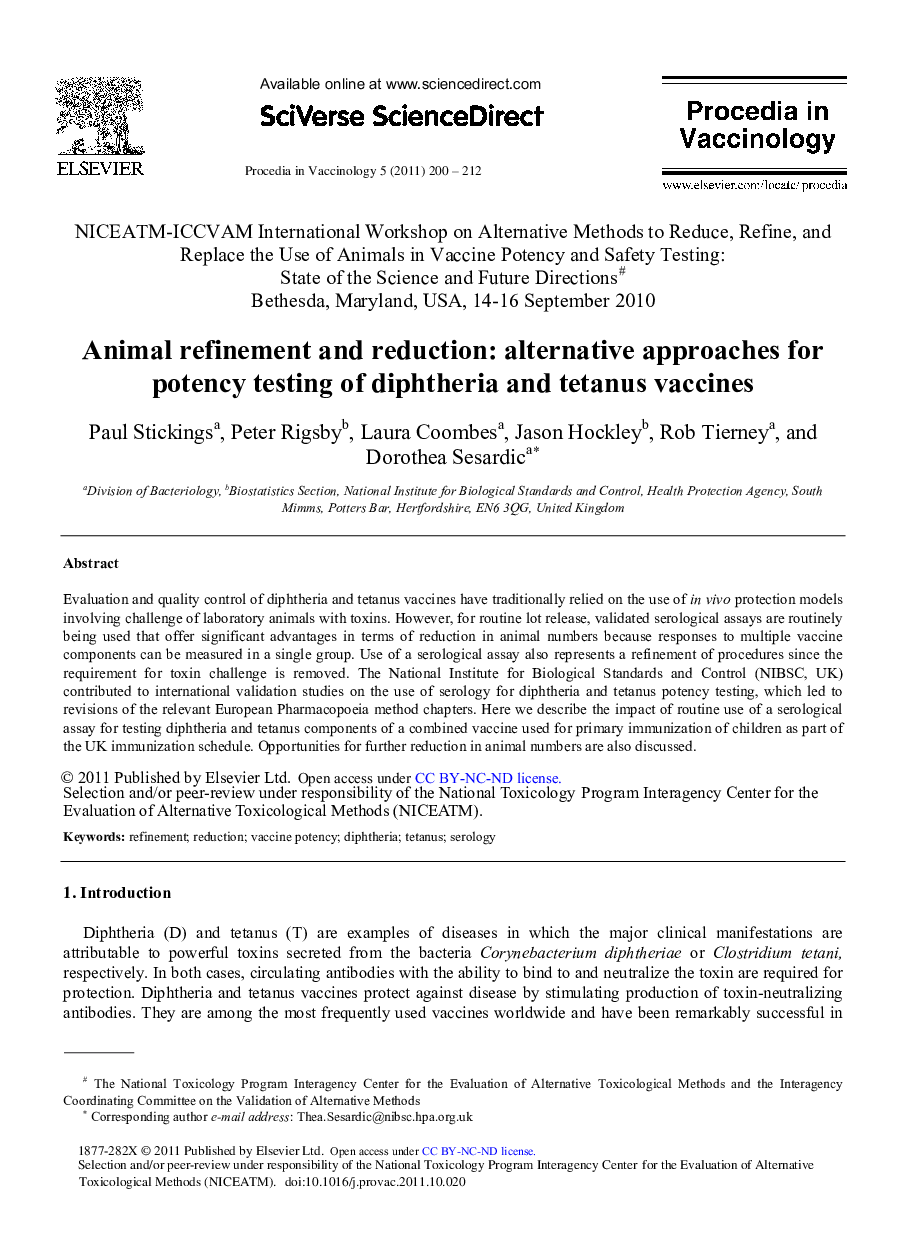| Article ID | Journal | Published Year | Pages | File Type |
|---|---|---|---|---|
| 2473725 | Procedia in Vaccinology | 2011 | 13 Pages |
Evaluation and quality control of diphtheria and tetanus vaccines have traditionally relied on the use of in vivo protection models involving challenge of laboratory animals with toxins. However, for routine lot release, validated serological assays are routinely being used that offer significant advantages in terms of reduction in animal numbers because responses to multiple vaccine components can be measured in a single group. Use of a serological assay also represents a refinement of procedures since the requirement for toxin challenge is removed. The National Institute for Biological Standards and Control (NIBSC, UK) contributed to international validation studies on the use of serology for diphtheria and tetanus potency testing, which led to revisions of the relevant European Pharmacopoeia method chapters. Here we describe the impact of routine use of a serological assay for testing diphtheria and tetanus components of a combined vaccine used for primary immunization of children as part of the UK immunization schedule. Opportunities for further reduction in animal numbers are also discussed.
